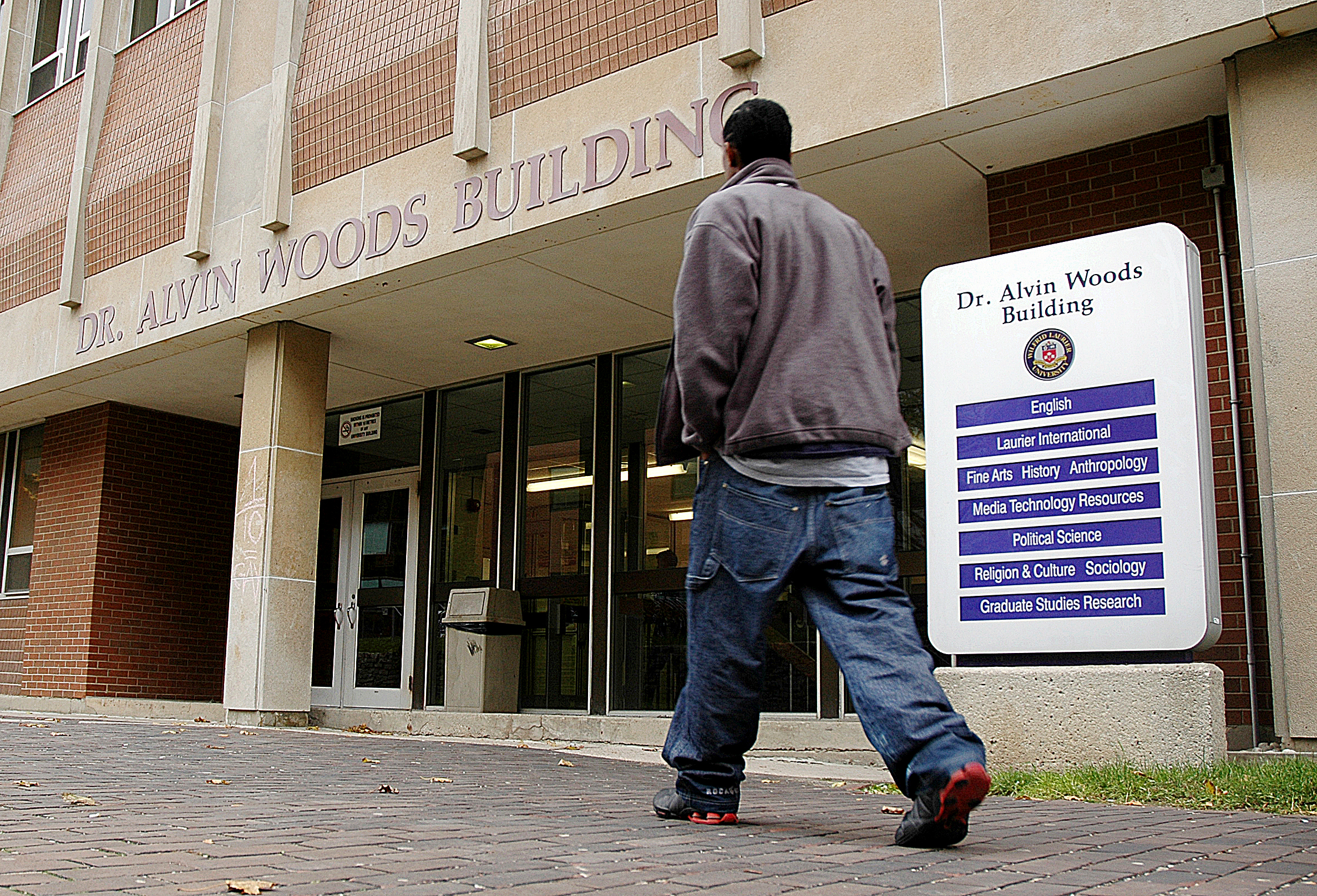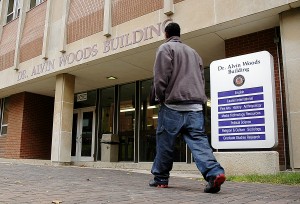Fall break far off


While some Ontario colleges and universities had fall reading weeks for students this past month, Wilfrid Laurier University students will have to continue to battle through fall term mid-term stress, as fall reading days may not be an option until at least the 2014-15 academic year.
On Oct. 17, the university’s fall study days committee met to continue the discussion surrounding fall study days at WLU.
The meeting resulted in some large developments, including a new focus which will lead to an expanded process for looking at fall study days.
However, this also means students probably won’t be seeing fall study days during the upcoming 2013-14 year.
“Given the broad nature of what we’re reviewing , it will take a long time and the full implications of it probably won’t be in place until 2014-15,” explained Chris Walker, vice president of university affairs for the Wilfrid Laurier University Students’ Union.
“We came to the conclusion that we can’t talk about fall study days and the mental health component of that without also looking at the impacts it will have on Orientation Week, as well as the academic transition component of what we’re trying to accomplish out of a strong orientation program.”
As a response to this concern, the WLUSU will be working with the university, particularly student affairs, to strike a task force to look at the first year experience as a whole.
Last year, it was concerns such as these that halted the debate regarding fall reading days when the issue was brought to the WLU Senate.
After the school of business and economics raised serious concerns regarding the scheduling of midterms and exams, fall reading days were no longer being considered for 2012.
Other concerns were also brought up, both last year and throughout this year, regarding the possible affect that fall reading days would have on Orientation Week if classes had to begin on the Thursday the week of Labour Day. When the debate to institute a break throughout the fall semester was debunked, many O-Week volunteers considered it to be a “victory”.
According to Walker, this initiative is supported by Deb MacLatchy, Laurier’s vice president of academic and provost, as well as vice president of student affairs David McMurray.
Walker went on to explain that it was the ambiguity surrounding where the fall study days should come from that lead to the decision to review Orientation Week. For him, it’s all about making the right decision the first time.
“Obviously we want first years to have a good transition,” said Walker of Orientation Week.
The task force will be focussing on ensuring that this is the case.
Adam Lawrence, acting dean of students at WLU, explained that many questions need to be answered, but he’s excited by the willingness of faculty, staff, and students to contribute to the discussion around fall study days.
“Everyone is willing to have these conversations, [and] when that happens, so much good can come of it,” Lawrence said. “Chris Walker, David McMurray and Deb MacLatchy have really taken the lead on this and are bringing the appropriate people together.”
According to Walker, the task force will be composed of representatives from WLUSU and the university, as well as some student leaders and first-year students. Their aim will be to “get broad-based feedback as to everything from the acceptance of first years … right up until the end of April,” he explained.
Lawrence felt positively about this decision.
“I think it’s a great process, to be honest with you,” he said. “But it is a process. It’s not just a snap decision; there needs to be the appropriate plans in place.”
There is no fall study days committee meeting planned for the near future. Instead, the focus has been turned over to the task force. However, Walker shared that more changes are on the horizon.
“When fall study days comes back as a proposal, it’s going to be part of a larger first year experience review that’s likely going to recommend changes or amendments to a lot of current structural things,” he explained.
He continued by saying the review will include exam scheduling as well as developing strategies to alleviate peak work-load times.
Expressing WLUSU’s opinion on the result of Wednesday’s meeting, Walker said, “We’re in support of it because we want to make an evidence-based decision. One that is going to have the most amount of benefit.”
Lawrence also concluded by conveying his support for the process.
“I’m a big advocate for it,” he said. “There’s going to be give and take … but everyone is coming to the table to have these discussions, which is good, and the conversation is very vibrant.”


